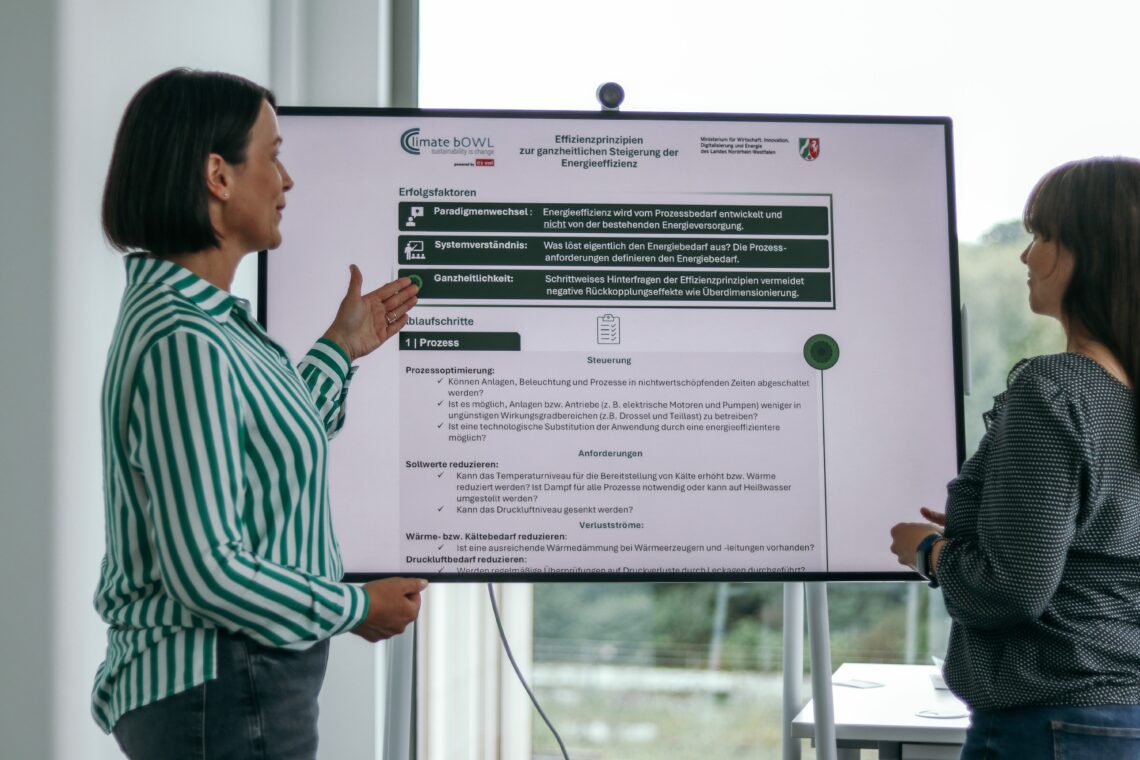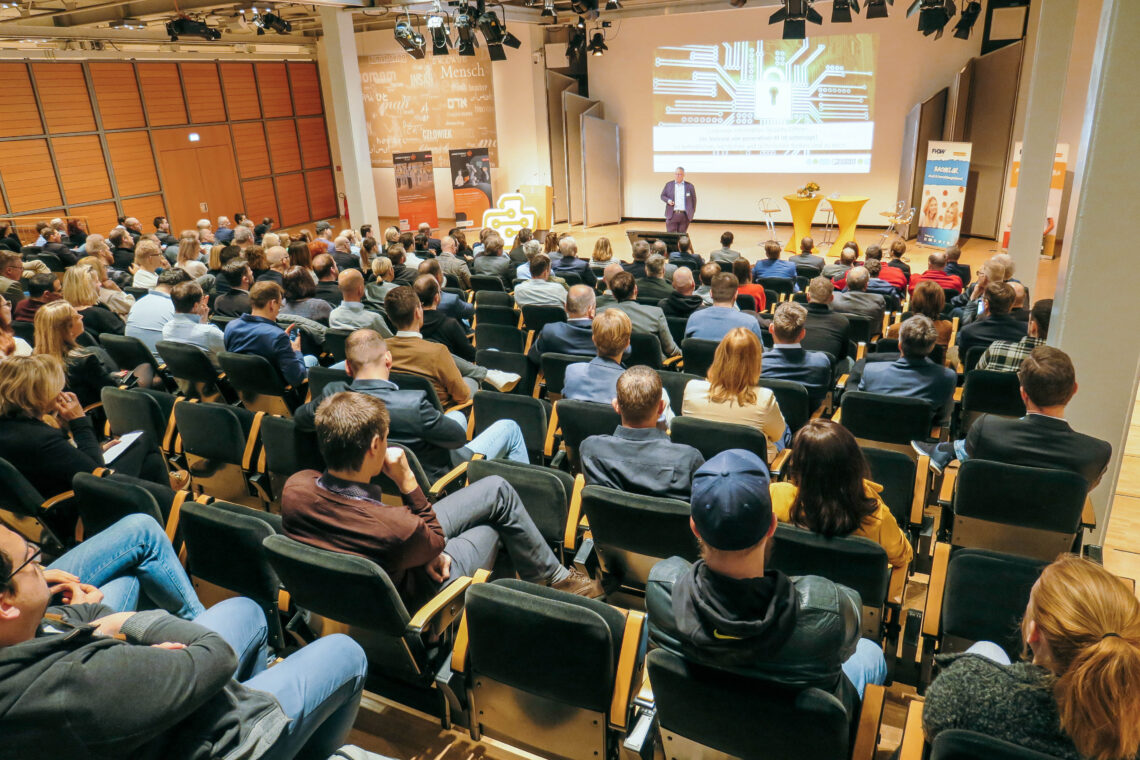
Understanding the energy requirements of processes: Checklist helps to identify efficiency potential
Energy efficiency is the first step on the path to climate neutrality, because every kilowatt hour that is not needed does not have to be provided and therefore does not cause any costs or emissions. This is why scientists from the energy technology and data science departments at Paderborn University are working with energy management experts from Phoenix Contact in the it’s OWL project ‘Climate-neutral Business in OWL (Climate bOWL)’ to develop an assistance system for the semi-automated development of efficiency measures. The project is supported by the companies Miele and GEA. The project team has summarized the most important findings of the developed efficiency algorithm in a checklist that helps companies to review their own efficiency potential.
“The approach we have developed helps us to understand the energy requirements of our processes and systematically identify efficiency potential,” says Sebastian Wegener, responsible for sustainability management at household and commercial appliance manufacturer Miele.
Analyzing the causes of energy demand
At each step through the checklist, companies should always ask themselves the following questions: What actually triggers the energy demand and how can this be reduced by applying the listed efficiency principles? This approach avoids negative interactions between efficiency measures, such as oversizing, and thus enables a holistic increase in energy efficiency, says Florian Schlosser from the Department of Energy Systems Engineering at Paderborn University. He knows: “Energy efficiency is developed based on the requirements of the processes and not on the existing energy supply.”
Identify potential savings in a targeted manner
GEA Westfalia Separator Group GmbH, a manufacturer of separators and decanters, is also already benefiting from the initial results of the sustainability project at it’s OWL. “The model developed to determine the energy requirement for a selected production plant at GEA creates transparency about the necessary and avoidable part of the process energy requirement. By analyzing the efficiency principles, potential savings can be identified in a more targeted manner in the future,” says Matthias Heinrich, Senior Director Data Driven Services at GEA, describing the benefits of the developed methodology.









